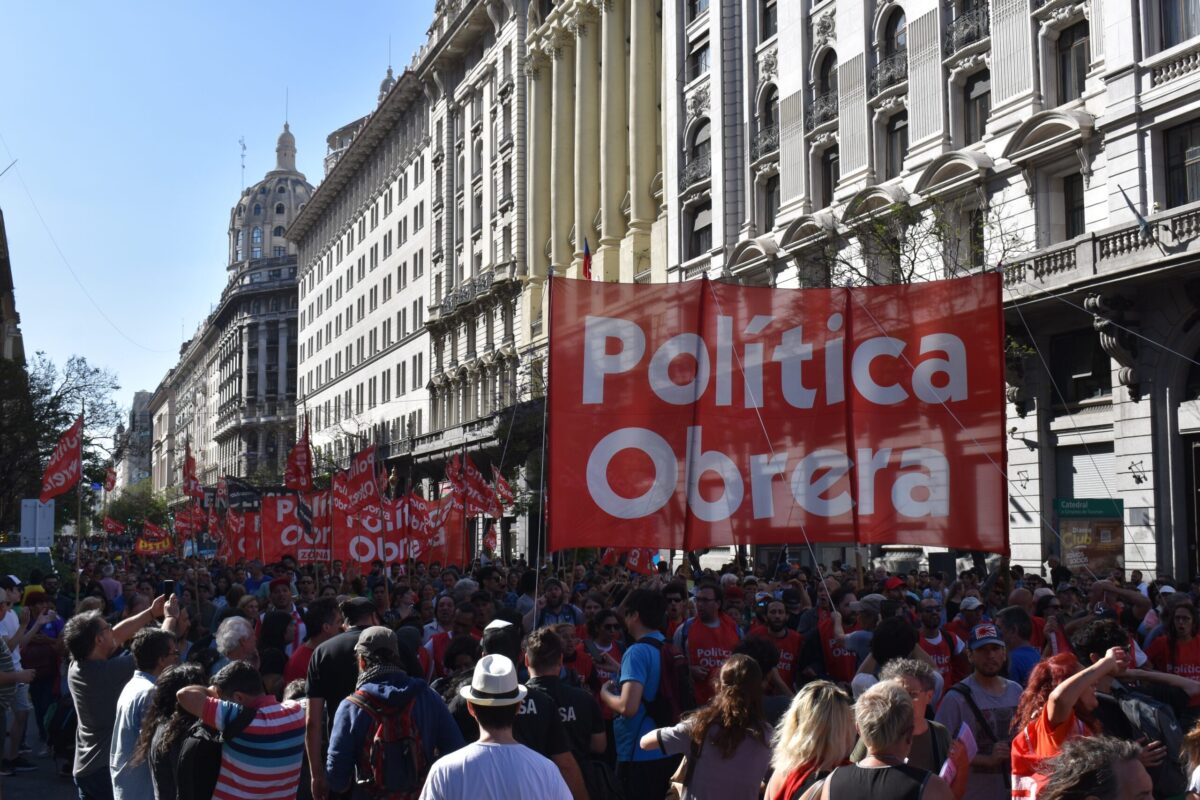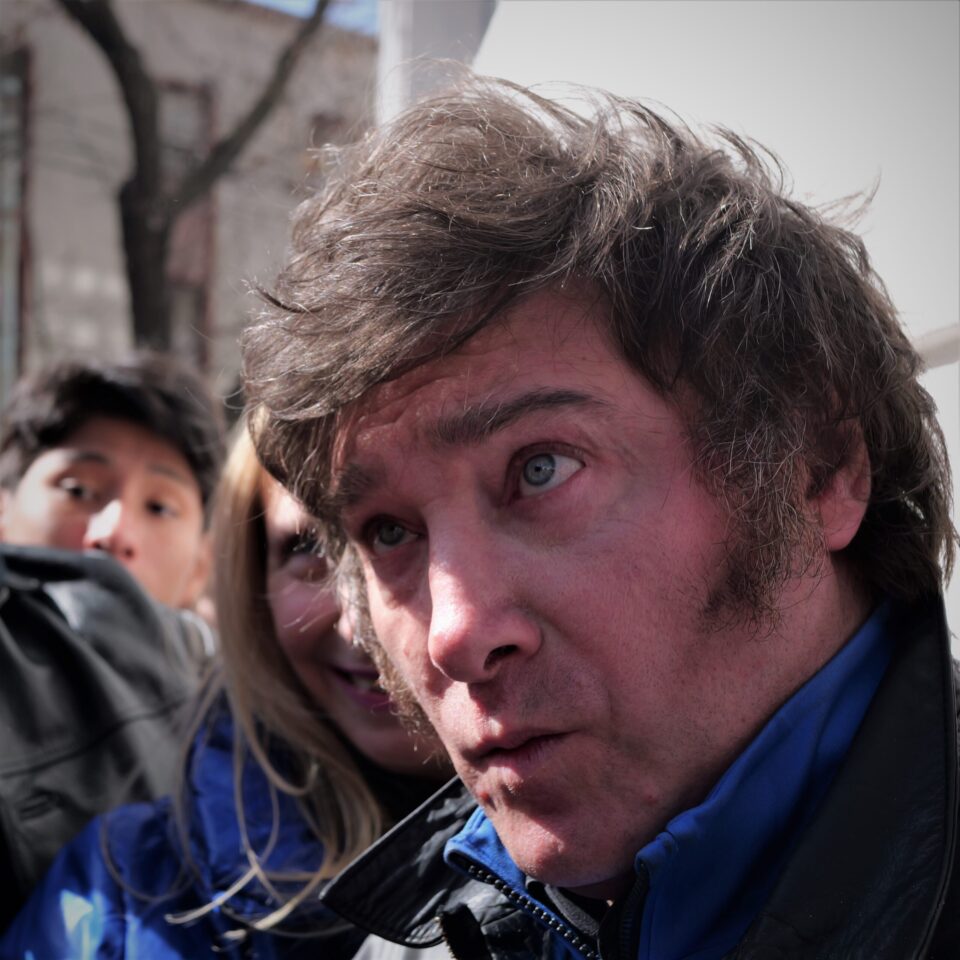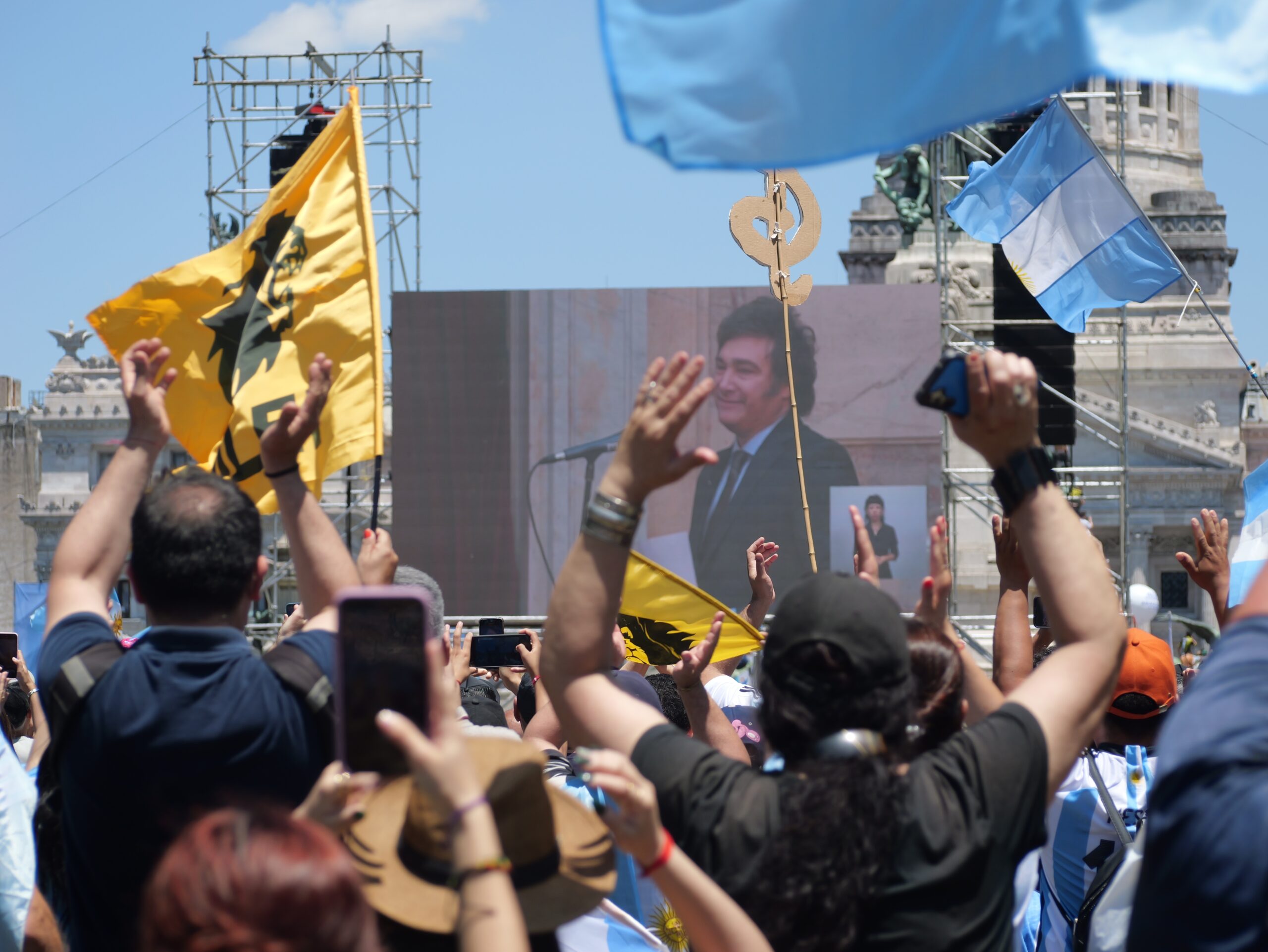Will Argentina survive the risky “operation” carried out by a president with the experience of a beginner and the ambition of a great visionary?

In the war, faced with no choice, the legs and arms of the wounded would be cut off. Better to be alive without an arm than buried whole. Drastic measures are sometimes the only thing left. Javier Milei, the new Argentine president, thinks that his country is such a wounded man. A once proud soldier, now on his deathbed, with a chainsaw towering over him. Milei, as he promised, will “cut” the Argentinian body part by part and even worse, he is fulfilling his promises. He plans to deregulate the economy, switch to the U.S. dollar, reduce the state apparatus, stop public spending on advertising, reduce financial support to the provinces and subsidies for energy and transport and stop public construction. In the first month of his mandate, since the announced economic shock therapy, he has already halved the value of the peso, sent nine ministries to the ashes of history, dismissed 5,000 civil servants and initiated the privatization of state-owned companies. He announces the abolition of the Central Bank, will make it impossible for politicians to print money and will “plant a bomb” under the main cause of inflation. Upon taking office in December, he said he would take a path unlike any of his predecessors to avoid hyperinflation.
“The bottom line is that there is no alternative to savings and there is no alternative to shock therapy. It is clear that in the short term, the situation will worsen, but then we will see the fruits of our efforts. Argentina will regain its position in the world that it should never have lost. We will work side by side with all the nations of the free world to help build a better planet,” Milei promised.
It is clear that Argentina is fighting a kind of war, the most difficult one, with itself. The country is fighting for bare survival. There is no doubt that it is an all-or-nothing game. The only question is whether, once one of the richest countries in the world, will survive this intervention, the crusade against “creeping socialism” or it will bleed to death. Virtually all non-Peronist presidents since Argentina’s return to democracy in 1983 have been removed from office due to protests against economic reforms. While the president is working with extreme measures to reduce the fiscal deficit, all eyes are on the people. Did anyone think that this extreme move would pass without protest? Traditionally strong trade unions will respond to austerity plans with strikes. Whether investors will trust him and maintain the markets will depend precisely on the degree of social conflict, because society will face a huge temptation. The struggle of one of the ten richest nations in the world, which half a century ago had three percent of the poor, with now 40 percent of citizens living in poverty, will be fought on the crust of bread. Aware of this, the president has increased the amount of child benefits and food stamp subsidies used by the country’s poorest to help them not starve.
Drastic measures are sometimes the only thing left
Long affected by galloping inflation and with the new government in place, Argentinians are faced with a new sudden increase in the prices of food, fuel and medicines. The consumer price index rose by 25.5 percent last month, making the inflation rate, according to official statistics, more than 200 percent.
However, the International Monetary Fund, to which Argentina owes 44 billion dollars, called these measures “courageous” and promised to help create an environment for the recovery of the private sector. The president is also congratulated by the architects of the world’s right, led by Donald Trump, from whom he took the mantra “Make America Great Again” turning it into “Make Argentina Great Again”. For them, the victory in Argentina is just the beginning because, as they say, Trump will win the presidential elections this year and Jair Bolsonaro in two years.
The others agree that Milei is a “suicidal lunatic.” They mourn the horn of South America because it has not remained immune to the right-wing spring. And last year they were convinced that Latin America is an impenetrable shield to the ultra-right arrow. When their footballers won the world championship and brought the trophy, Argentinians were also convinced that they rose above poverty. Intoxicated by a sporting victory, they forgot how hungry they were. And then Messi and the other footballers, none of whom live in Argentina, returned to their mansions. The bubble burst and the people returned to reality, even more desperate. Elections followed soon after. Milei, who bases his recovery strategy on a chainsaw (which he literally wielded during the election campaign), became the president of the democratic elections exactly 40 years after the overthrow of the dictatorship.

It’s not just Messi and Che Guevara who are Argentina’s trademarks. This country is today associated with state bankruptcies, as many as three times in the last two decades, and Javier Milei, the sworn enemy of the political caste, self-proclaimed anarcho-capitalist, Trumpian and Bolsonarian, who has entered history as the first libertarian at the head of a country. Analysts debate whether he is a madman or a genius. Some consider him the harbinger of a new strong economy. Others claim that Argentina will be swallowed up by the abyss. They say that it exists in the people’s despair and that the citizens are in such a state of delirium that they would agree to be led by a blind doctor, let alone a populist, if he told them he knew the way to salvation. However, it should be noted that Milei did appear as a populist in the campaign, but his economic plan is the least populist. Unlike the variations of Peronism that preceded it, Kirchnerism and its rival federalist Peronism, his economic strategy is not based on the failed policies of subsidies in the production sector that have produced major problems for Argentina’s fiscal stability. He is focusing on the deficit, while being aware that there are no painless alternatives.
Inflation is now accelerating, which, before it starts declining, will further weaken the majority of the population and increase unemployment, while endangering small and medium-sized enterprises. Clearly, this will lead to an unstable political situation characterized by social conflicts and state repression against protests which in turn, repels foreign investors. Inflation will not stop rising until extensive fiscal reforms are implemented, which will entail even greater cuts in public spending. Meanwhile, the prices of various products and services in Argentina will go up. This has been happening since December. The experiences with economic crises and reforms of fiscally inefficient economic systems, from Eastern European to Latin American, lead to the conclusion that the introduction of fiscal order is the first thing that must be done in order to avoid economic collapse. That is the basis.
No president has had such little support in parliament in the last 40 years
Otherwise, reforms cannot bear fruit. Practice tells us that even a short-term improvement in the standard of living due to an increase in public spending soon plunges the state into bankruptcy. The budget reform is ahead of the market reform and the budget deficit is the main obstacle that the new government must overcome. Shock therapy in practice is always painful for the citizens, especially because the profit is a long way off. The one who implements unpopular reforms immediately suffers damage and needs to survive politically until the fruits are harvested. The announcement of austerity upon assuming office is political suicide. Interestingly, he won a convincing victory in the elections with such a campaign. His bitter pill was swallowed with gusto. On election night, his supporters cheered by raising chainsaws in the air, telling him that he should cut down the state apparatus. They are ready for painful cuts, aware that they have nothing to lose. Economic collapse is certainly guaranteed for them.
However, Milei’s strategy is not without obstacles. Apart from the fact that the people’s endurance is questionable, the question remains to what extent the parliament will oppose, which is why we should not rule out the option that after the elections are won, the government lowers its tone and becomes moderate. No president has had such little support in parliament in the last 40 years. In the upper house of the Argentine parliament, Milei has 7 out of 72 mandates and in the lower house of the parliament 38 out of a total of 257 seats. No provincial governor is his supporter. Even though Argentina is a presidential republic, it will be extremely difficult for him to push legislation for extensive economic reforms through parliament. On the other hand, the opposing camp might realize that without reforms Argentina is headed for another bankruptcy and that, if Milei loses, they will bear the political consequences for such an outcome. Therefore, a compromise between the libertarian and his rivals is an option.
There is a fine line between fame and fortune. Whoever tames one of the highest inflation rates in the world will experience enormous fame and secure two mandates. Javier Milei came on the scene as the first doctrinal libertarian as the head of the state. Whether he will be perceived as a genius or a madman depends on his success.
